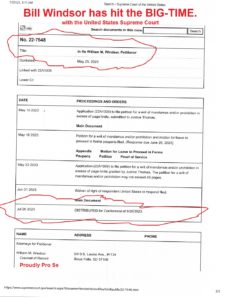1-11-CV-01923-TWT – Motion for Reconsideration-2024-04-10
1-11-CV-01923-TWT-Letter-to-USDCNDGa-Clerk-filing-2024-04-10
MOTION FOR RECONSIDERATION OF ORDER
William M. Windsor (“Windsor” or “Plaintiff”) hereby files this MOTION FOR RECONSIDERATION OF ORDER DENYING LEAVE.
Windsor shows the Court as follows:
FACTUAL BACKGROUND
- On April 3, 2024, Judge Thomas W. Thrash entered this purported order [EXHIBIT A]:
“This is a pro se civil action filed against the former Clerk of Court, a number of his employees, judges of the United States District Court for the Northern District of Georgia, and judges of the Court of Appeals for the Eleventh Circuit. It is before the Court on various motions filed by the pro se Plaintiff. After a hearing and on motion of the United States of America, on July 15, 2011 the Court issued an injunction prohibiting the Plaintiff from filing any additional Complaints against federal judges or employees of the federal judiciary without obtaining the consent of a federal judge in the district in which the action was to be filed. The injunction was issued because of the Plaintiff’s extraordinary abuse of the federal judicial system by repeatedly filing frivolous, malicious and vexatious lawsuits against the judges assigned to his many cases, because of the burden to clerical and judicial operations caused by his voluminous frivolous filings, and because his continuing course of conduct had become an impediment to the administration of justice. The administration of justice would suffer irreparable harm if the Plaintiff is allowed to continue filing frivolous, malicious and vexatious lawsuits against the judges and others involuntarily involved in his litigious campaigns. The balance of the harms and the public interest demanded that the Plaintiff be stopped.
“The Plaintiff’s most recent filings are more of the same. The Motion for Leave to Pursue Complaint for Violation of Civil Rights and Additional Causes of Action [Doc. 294] seeks permission to file a lawsuit against the Clerk of the Supreme Court of the United States and one of his employees because of the Plaintiff’s unhappiness with how a petition for a writ of mandamus was handled by the Court. The Motion for Leave to file a Bivens Action against Judge Thomas W. Thrash [Doc. 295], and Motion for Leave to File Purported Injunctions [Doc. 296] seek permission to file a lawsuit against this Court for limiting the Plaintiff’s ability to file frivolous, malicious and vexatious lawsuits against judges and other judicial officers. The Motion for Leave to Pursue Complaint for Violation of Civil Rights and Addition Causes of Action [Doc. 294] is DENIED. The Motion for Leave to file a Bivens Action against Judge Thomas W. Thrash [Doc. 295], and Motion for Leave to File Purported Injunctions [Doc. 296] are DENIED. The Court notes that the proposed Bivens action against it is clearly barred by the statute of limitations and absolute judicial immunity. Leave to file the proposed Complaints is DENIED.”
- On May 20, 2011, Windsor filed the Verified Complaint in the Superior Court of Fulton County. The Civil Action was assigned No.
- On June 14, 2011, Windsor filed a Motion to Deny Removal and a RESPONSE TO THE FEDERAL DEFENDANTS’ MOTION FOR A PROTECTIVE ORDER. This was never addressed by Judge Thomas W. Thrash, and he never addressed jurisdiction. Therefore, this latest purported Order by Judge Thomas W. Thrash is a void order.
- Docket Numbers 294, 295, and 296 were not submitted to Judge Thomas W. Thrash. They were submitted to the Presiding Judge, Timothy Batten.
- THE ORDER IS DEFECTIVE AS JUDGE THOMAS W. THRASH HAS NO JURISDICTION.
- On June 14, 2011, Windsor filed a Motion to Deny Removal and a RESPONSE TO THE FEDERAL DEFENDANTS’ MOTION FOR A PROTECTIVE ORDER. This was never addressed by Judge Thomas W. Thrash, and he never addressed jurisdiction.
- The ORDER must be vacated.
- THE ORDER CITES NO CASE LAW AND NO STATUTE IN SUPPORT.
- The ORDER is completely void of any authority. Judge Thomas W. cited no case law and no Rules or other authority.
- The ORDER must be vacated.
III. THE MOTIONS WERE SUBMITTED TO PRESIDING JUDGE TIMOTHY BATTEN, NOT JUDGE THOMAS W. THRASH.
- Docket Numbers 294, 295, and 296 were not submitted to Judge Thomas W. Thrash. They were submitted to the Presiding Judge, Timothy Batten. [EXHIBIT B.]
- WINDSOR HAS NEVER ABUSED THE FEDERAL JUDICIAL SYSTEM, AND JUDGE THOMAS W. THRASH CAN CITE NO FACTS TO SHOW THAT HE DID.
- Judge Thomas W. Thrash falsely and maliciously wrote in this ORDER: “The injunction was issued because of the Plaintiff’s extraordinary abuse of the federal judicial system by repeatedly filing frivolous, malicious and vexatious lawsuits against the judges assigned to his many cases.”
- Judge Thomas W. Thrash can cite no facts to support this outrageous claim.
- WINDSOR HAS NEVER FILED A FRIVOULOUS FILING. ALL OF HIS FILINGS HAVE BEEN CAREFULLY RESEARCHED AND HAVE BEEN BASED ON THE FACTS AND THE LAW.
- Judge Thomas W. Thrash false, maliciously, and without factual support wrote in his ORDER: “…because of the burden to clerical and judicial operations caused by his voluminous frivolous filings, and because his continuing course of conduct had become an impediment to the administration of justice.”
- WINDSOR HAS NEVER FILED A malicious or vexatious lawsuit against anyone. ALL OF HIS FILINGS HAVE BEEN CAREFULLY RESEARCHED AND HAVE BEEN BASED ON THE FACTS AND THE LAW.
- Judge Thomas W. Thrash false, maliciously, and without factual support wrote in his ORDER: “The administration of justice would suffer irreparable harm if the Plaintiff is allowed to continue filing frivolous, malicious and vexatious lawsuits against the judges and others involuntarily involved in his litigious campaigns. The balance of the harms and the public interest demanded that the Plaintiff be stopped.”
- Judge Thomas W. Thrash is a corrupt judge who has committed one crime after another against Windsor. [1-11-CV-01923-TWT DOCKET.]
VII. WINDSOR HAS NEVER FILED A malicious or vexatious lawsuit against anyone. ALL OF HIS FILINGS HAVE BEEN CAREFULLY RESEARCHED AND HAVE BEEN BASED ON THE FACTS AND THE LAW.
- Judge Thomas W. Thrash maliciously and without factual support wrote in his ORDER: “The Plaintiff’s most recent filings are more of the same.”
- There are no facts to support this outrageous statement.
VIII. WINDSOR HAS NOT SOUGHT TO PURSUE A LEGAL ACTION AGAINST the Clerk of the Supreme Court of the United States and one of his employees because of the Plaintiff’s unhappiness with how a petition for a writ of mandamus was handled by the Court. HE SOUGHT IT DUE TO GROSS VIOLATIONS OF THE LAW AND THE RULES.
- Judge Thomas W. Thrash maliciously and without factual support wrote in his ORDER: “The Motion for Leave to Pursue Complaint for Violation of Civil Rights and Additional Causes of Action [Doc. 294] seeks permission to file a lawsuit against the Clerk of the Supreme Court of the United States and one of his employees because of the Plaintiff’s unhappiness with how a petition for a writ of mandamus was handled by the Court.”
- They violated the Rules and the law. They likely committed criminal violations as well.
- WINDSOR HAS NOT SOUGHT TO PURSUE A LEGAL ACTION AGAINST JUDGE THOMAS W. THRASH FOR IMPROPER PURPOSES. HE SOUGHT IT DUE TO GROSS VIOLATIONS OF THE LAW AND THE RULES.
- Judge Thomas W. Thrash maliciously and without factual support wrote in his ORDER: “The Motion for Leave to file a Bivens Action against Judge Thomas W. Thrash [Doc. 295], and Motion for Leave to File Purported Injunctions [Doc. 296] seek permission to file a lawsuit against this Court for limiting the Plaintiff’s ability to file frivolous, malicious and vexatious lawsuits against judges and other judicial officers.”
- The United States Constitution gives pro se parties the right to file lawsuits, and this right may not be taken away absent a Constitutional amendment.
- WINDSOR HAS NOT SOUGHT TO PURSUE A LEGAL ACTION BARRED BY THE STATUTE OF LIMITATIONS OR A CLAIM OF ABSOLUTE JUDICIAL IMMUNITY.
- Judge Thomas W. Thrash maliciously and without factual support wrote in his ORDER: “The proposed Bivens action against it is clearly barred by the statute of limitations and absolute judicial immunity.”
- The proposed action is not barred by the statute of limitations. Judge Thomas W. Thrash again makes such a claim with no legal authority cited. State law establishes the statute of limitations, and this ORDER is yet another violation that will be subject to a claim for denial of Constitutional rights.
- There is no such thing as “absolute judicial immunity.” Judge Thomas W. Thrash again makes such a claim with no legal authority cited.
- THIS COURT IMPROPERLY OVERLOOKED THAT The NOTICE OF removal is procedurally defective, and thE MOTION TO DENY REMOVAL MUST BE GRANTED, AND THE ORDER MUST BE VACATED.
- The NOTICE OF REMOVAL had procedural defects that make it void on its face.
- There is a presumption against removal jurisdiction, and this Court must strictly construe the removal statute. (Fajen v. Foundation Reserve Ins. Co., 683 F.2d 331, 333 (10th Cir.1982).) The party seeking removal has the burden of proving the jurisdictional and procedural requirements for removal. (Laughlin v. Prudential Ins. Co., 882 F.2d. 187 (5th Cir. 1989).)
- The NOTICE OF REMOVAL fails on all accounts, so the MOTION TO DENY REMOVAL must be granted, and the ORDER must be vacated.
XII. THIS COURT IMPROPERLY OVERLOOKED THAT The removal is procedurally defective FOR FAILURE TO COMPLY WITH THE REQUIREMENT THAT DEFENDANTS MUST MAKE AN APPEARANCE, and thE MOTION TO DENY REMOVAL MUST BE GRANTED, AND THE ORDER MUST BE VACATED.
- None of the Defendants had made an appearance.
- None of the Defendants had filed a CERTIFICATE OF INTERESTED PERSONS AND CORPORATE DISCLOSURE STATEMENT as required by N.D.Ga Local Rule 3.3 and FRCP 7.1, which was due to be filed with the Clerk “at the time of first appearance. [1-11-CV-0192-TWT Docket].
- The U.S. Attorneys, Sally Quillian Yates and Christopher Huber, had no authority to appear for the Defendants.
- Christopher Huber was representing one of the Defendants in two legal actions before Defendant Judge Duffey. There are an assortment of other conflicts that made it impossible for Christopher Huber to represent many of the Defendants.
- Nothing had been filed with any court giving the U.S. Attorneys the authority to appear for any of the Defendants.
- None of the Defendants were identified in the signature block on the NOTICE OF REMOVAL, so the Petition was not filed on behalf of any of the Defendants
- There is no indication that any of the Defendants have signed a sworn affidavit in regard to representation or the NOTICE OF REMOVAL.
- The ORDER must be vacated.
XIII. THIS COURT IMPROPERLY OVERLOOKED THAT The removal is procedurally defective BECAUSE THE ACTION WAS NOT YET PENDING IN FULTON COUNTY SUPERIOR COURT AS 28 U.S.C. § 1442 REQUIRES, SO THE MOTION TO DENY REMOVAL MUST BE GRANTED, AND THE ORDER MUST BE VACATED.
- The removal statute requires service prior to removal in the state of Georgia. The removal statute states that an action must be “pending” in a state court before it may be removed. See 28 U.S.C. § 1442(a) (noting that civil action may be removed to the district court “embracing the place wherein it is pending”).
- According to Black’s Law Dictionary, the word pending means “remaining undecided” or “awaiting decision.” Black’s Law Dictionary 1154 (7th ed. 1999). An action must have “commenced” before it can be “pending.” A determination of whether the action was pending in a Georgia court at the time of removal requires reference to Georgia law. Under Georgia law, “there is a substantial difference between the commencement of an action and its being a suit pending between the parties.” (McClendon v. Hernando Phosphate Co., 28 S.E. 152, 153 (Ga. 1897).) Georgia law preserves this distinction, as filing a suit “is still not the commencement of suit unless followed by service within a reasonable time.” (Franek v. Ray, 236 S.E.2d 629, 632 (Ga. 1977).) Thus, under Georgia law, “an action is not a ‘pending’ suit until after service of process is perfected.” (Steve A. Martin Agency, Inc. v. PlantersFIRST Corp., 678 S.E.2d 186, 188 (Ga. Ct. App. 2009); see also Jenkins v. Crea, 656 S.E.2d 849, 850 (Ga. Ct. App. 2008) (“An action is not a pending suit until service is perfected.”)
- Defendants Judge Julie E. Carnes, Judge Joel F. Dubina, Judge Ed Carnes, Judge Rosemary Barkett, and B. Grutby have not been served with process. Windsor also filed a motion with the Fulton County Superior Court seeking to add six additional Defendants.
- Since the Civil Action was not yet “pending” in Fulton County Georgia Superior Court, the text of the removal statute prevents removal prior to service on Judge Julie E. Carnes, Judge Joel F. Dubina, Judge Ed Carnes, Judge Rosemary Barkett, and B. Grutby. (28 U.S.C. § 1446(b).)
XIV. THIS COURT IMPROPERLY OVERLOOKED THAT The removal is procedurally defective FOR FAILURE TO COMPLY WITH THE RULE OF UNANIMITY, and this MOTION TO DENY REMOVAL MUST BE GRANTED.
- Another defect in the NOTICE OF REMOVAL is its failure to comply with the rule of unanimity.
- 28 U.S.C. § 1446(a) states that “defendants desiring to remove any civil action . . . shall file in the district court of the United States . . . a notice of removal.” There are 16 Defendants in this Civil Action, and all 16 Defendants have not filed the NOTICE OF REMOVAL.
- 28 U.S.C. § 1446 requires the unanimous consent of all defendants to the removal. (Russell Corp. v. American Home Assurance Co., 264 F.3d 1040 (11th Cir. 09/06/2001); Loftis v. U.S. Parcel Serv., Inc., 342 F.3d 509, 516 (6th Cir. 2003).) The NOTICE OF REMOVAL failed to claim the consent of ANY Defendant, and it clearly fails to explain the absence of consent to the removal by at least nine of the Defendants, so it is defective for violating the rule of unanimity. Since some of the Defendants did not join in the notice of removal and the NOTICE OF REMOVAL failed to account or the lack of their consent, the NOTICE OF REMOVAL is procedurally defective and cannot withstand the MOTION TO DENY REMOVAL.
“… all of the defendants must consent to removal.” (Wisc. Dep’t of Corr. v. Schacht, 524 U. S. 381, 393 (1998) (Kennedy, J., concurring).)
“The unanimity requirement mandates that in cases involving multiple defendants, all defendants must consent to removal.” Russell Corp. v. Am. Home Assur. Co., 264 F.3d 1040, 1044 (11th Cir. 2001) (citing Chicago R. I. & P. Ry. Co v. Martin, 178 U.S. 245, 247-48, 20 S.Ct. 854, 855, 44 L.Ed. 1055 (1900) (deriving from a removal statute the rule that all defendants must join in removal)). (See also In re Federal Savings and Loan Insurance Corp., 837 F.2d 432 (11th Cir. 01/19/1988); In re Ocean Marine Mut. Protection and Indem. Ass’n, Ltd., 3 F.3d 353, 355-56 (11th Cir. 1993); Marano Enters. of Kan. v. Z-Teca Rests., L.P., 254 F.3d 753, 754 (8th Cir. 2001); Balazik v. County of Dauphin, 44 F.3d 209, 213 (3d Cir. 1995); Doe v. Kerwood, 969 F.2d 165, 167 (5th Cir. 1992); Hewitt v. City of Stanton, 798 F.2d 1230, 1232 (9th Cir. 1986); N. Ill. Gas Co. v. Airco Indus. Gases, 676 F.2d 270, 272-73 (7th Cir.1982); Cornwall v. Robinson, 654 F.2d 685, 686 (10th Cir. 1981); 11C Charles Alan Wright, Arthur R. Miller & Edward H. Cooper, Federal Practice and Procedure § 3731 (3d. ed. 1998); Esposito v. Home Depot U.S.A., Inc., 590 F.3d 72 (1st Cir. 12/30/2009).)
- THIS COURT IMPROPERLY OVERLOOKED THAT The removal is defective BECAUSE THIS COURT LACKS JURISDICTION, SO thE MOTION TO DENY REMOVAL MUST BE GRANTED, AND THE ORDER MUST BE VACATED.
- This Court lacks federal-question jurisdiction because there is no dispute as to the validity, construction or effect of a federal statute with a cause of action “arising under” the laws of the United States.
- This Civil Action is pursuant to the Georgia Racketeer Influenced and Corrupt Organizations Act, O.C.G.A. § 16-14-1 et seq. No federal statute has been included in the causes of action.
- There is no federal question presented on the face of the Verified Complaint. Windsor intends this Civil Action to be solely based on Georgia law. Windsor specifically excluded federal statutes that could have been raised so this action would remain in Georgia courts.
Federal courts use the “well-pleaded complaint” rule to determine “arising under” jurisdiction. Long, 201 F.3d at 758. That rule provides that “‘federal jurisdiction exists only when a federal question is presented on the face of the plaintiff’s properly pleaded complaint.’” Id. (quoting Caterpillar Inc. v. Williams, 482 U.S. 386, 392 (1987)). “[T]he party who brings the suit is master to decide what law he will rely upon.” The Fair v. Kohler Die & Specialty Co., 228 U.S. 22, 25 (1913).
This court has held that for a paper to fall within the removal statutes, it must be unambiguous. Cf. Akin v. Ashland Chem. Co., 156 F.3d 1030, 1035-36 (10th Cir. 1998)
XVI. THIS COURT IMPROPERLY OVERLOOKED THAT The removal is defective PURSUANT TO 28 U.S.C § 1442 (a)(1) BECAUSE FEDERAL OFFICERS HAVE NOT RAISED A FEDERAL DEFENSE, SO THE MOTION TO DENY REMOVAL MUST BE GRANTED, AND THE ORDER MUST BE VACATED.
- The U.S. Attorney erroneously cited 28 U.S.C. § 1442(a)(1) as a basis for the removal.
28 U.S.C. § 1442(a)(1) provides that “a civil action or criminal prosecution commenced in a State court against any of the following may be removed by them to the district court of the United States for the district and division embracing the place wherein it is pending: The United States or any agency thereof or any officer (or any person acting under that officer) of the United States or of any agency thereof, sued in an official or individual capacity for any act under color of such office or on account of any right, title or authority claimed under any Act of Congress….”
- 28 U.S.C. § 1442(a)(1) does not apply because the Verified Complaint is not about suing “in an official or individual capacity for any act under color of such office or… under any Act of Congress….”
The U.S. Supreme Court holds that the jurisdictional provision found in 28 U.S.C. § 1442(a)(1) required federal officers to raise a federal defense before removing to federal court. Mesa v. California, 489 U.S. 121, 109 S. Ct. 959, 103 L. Ed. 2d 99 (1989).
- None of the other Defendants raised any defense whatsoever to the Civil Action. The ONLY statement made by the U.S. Attorney in the NOTICE OF REMOVAL is: “This action is one that may be removed to the United States District Court pursuant to 28 U.S.C. § 1442(a)(1) and 28 U.S.C. § 2679.”
- There is no citation of case law to support such a claim. 28 U.S.C. § 1442(a)(1) has nothing to do with defenses this Civil Action, so no defense has been raised.
The Supreme Court has held that “the right of removal [under § 1442(a)(1)] is absolute for conduct performed under color of federal office,” Arizona v. Manypenny, 451 U.S. 232, 242, 101 S. Ct. 1657, 1664, 68 L. Ed. 2d 58 (1981), and that 28 U.S.C. § 1442(a)(1) “is broad enough to cover all cases where federal officers can raise a colorable defense arising out of their duty to enforce federal law.” Willingham v. Morgan, 395 U.S. 402, 406-07, 89 S. Ct. 1813, 1816, 23 L. Ed. 2d 396 (1969). The Court agreed with the government that “the removal statute is an incident of federal supremacy, and that one of its purposes [is] to provide a federal forum for cases where federal officials must raise defenses arising from their official duties.” Willingham, 395 U.S. at 405, 89 S. Ct. at 1815.
The purpose of section 1442(a)(1) is to “permit[ ] the removal of those actions commenced in state court that expose a federal official to potential civil liability or criminal penalty for an act performed … under color of office.” Murray v. Murray, 621 F.2d 103, 107 (5th Cir.1980). In Willingham, the Supreme Court noted that “the removal statute is an incident of federal supremacy, and that one of its purposes was to provide a federal forum for cases where federal officials must raise defenses arising from their official duties.” 395 U.S. at 405, 89 S. Ct. at 1815. “The test for removal should be broader, not narrower, than the test for official immunity.” Id.
- The U.S. Attorney has failed to meet the Supreme Court’s stated requirements for removal pursuant to 28 U.S.C. § 1442(a)(1) that are binding precedents recognized by the Eleventh Circuit.
Proper removal of an action under section 1442(a)(1) has historically required the satisfaction of two separate requirements. First, the defendant must advance a “colorable defense arising out of [his] duty to enforce federal law.” Mesa v. California, 489 U.S. 121, 133, 109 S. Ct. 959, 966-67, 103 L. Ed. 2d 99 (1989) (quoting Willingham, 395 U.S. at 406-07, 89 S. Ct. at 1816). That defense need only be plausible; its ultimate validity is not to be determined at the time of removal. Id. at 129, 109 S. Ct. at 964. However, absent the assertion of a federal defense, a state court action against a federal officer is not removable. Id. [emphasis added.]
Second, the defendant must establish that there is a “causal connection between what the officer has done under asserted official authority” and the action against him. Maryland v. Soper, 270 U.S. 9, 33, 46 S. Ct. 185, 190, 70 L. Ed. 449 (1926) (interpreting predecessor statute); see also Willingham, 395 U.S. at 409, 89 S. Ct. at 1817. However, the Supreme Court has held that, in a civil suit such as this, it is sufficient for the defendant to show that his relationship to the plaintiff “derived solely from [his] official duties.” Willingham, 395 U.S. at 409, 89 S. Ct. at 1817. In such a case, the causal connection requirement “consists, simply enough, of the undisputed fact that [the defendant was] on duty, at [his] place of federal employment, at all the relevant times.” Id. If the question raised by the plaintiff is whether the defendant was engaged in “some kind of frolic,” or acting in contravention of his official duties, the parties will have the opportunity to present their versions of the facts to a federal court. Id. (Magnin v. Teledyne Continental Motors, 91 F.3d 1424 (11th Cir. 08/15/1996).) [emphasis added.]
- It is impossible for a Defendant to raise a colorable defense to charges of racketeering as racketeering is not something that one may do under their federal employment.
- The federal interest in this matter is insubstantial, and the exercise of federal-question jurisdiction would disrupt the Congressionally-approved balance of federal and state judicial responsibilities.
“[F]ederal jurisdiction demands not only a contested federal issue, but a substantial one, indicating a serious federal interest in claiming the advantages thought to be inherent in a federal forum.” Grable, 545 U.S. at 313. Those advantages are “the experience, solicitude, and hope of uniformity that a federal forum offers on federal issues.” Id. at 312.
More recently, in Adventure Outdoors, Inc. v. Bloomberg, 552 F.3d 1290 (C.A. 11, Dec. 19, 2008), plaintiffs brought, inter alia, a defamation claim based on the defendants’ statements that the plaintiffs had violated federal gun laws. See 552 F.3d at 1293-94. The Eleventh Circuit reversed the district court’s conclusion that federal question jurisdiction was appropriate, concluding that the federal interest involved was insubstantial. See id. at 1301-03.
Ayres v. Gen. Motors Corp., 234 F.3d 514, 518 (11th Cir. 2000) serves to illustrate this point. In Ayres, the plaintiff brought suit under Georgia’s civil RICO statute, alleging that the defendant had violated the federal National Traffic and Motor Vehicle Safety Act and, by so doing, had committed federal mail and wire fraud, which were predicate offenses constituting racketeering. See 234 F.3d at 516-17. The Eleventh Circuit found federal question jurisdiction was appropriate because “this case requires that we decide whether or not a breach of the disclosure duty under the [National Traffic and Motor Vehicle] Safety Act constitutes a federal mail and wire fraud crime.” Id. at 519. In other words, because the meaning of a federal statute was at issue, a substantial federal question was involved. See id.
(“[F]ederal question jurisdiction exists where a plaintiff’s cause of action has as an essential element the existence of a right under federal law which will be supported by a construction of the federal law concluding that the federal crime is established, but defeated by another construction concluding the opposite”). Where, however, “allegations of violations of federal law as predicate acts under a state RICO act” do not “require the court to interpret an independent federal statute,” federal question jurisdiction is inappropriate. See Austin v. Ameriquest Mortgage Co., 510 F. Supp. 2d 1218, 1227-28 (N.D. Ga. 2007); accord, e.g., Neighborhood Mortgage, Inc. v. Fegans, No. 1:06-CV-1984-JOF, 2007 WL 2479205, at *4 (N.D. Ga. Aug. 28, 2007) (“Unlike Ayres where the court had to decide whether the federal mail and wire fraud statutes would also constitute a breach of the National Traffic and Motor Vehicle Safety Act, where there is no other federal question, . . . the mere citation of federal mail and wire fraud as predicate acts to a state RICO action is not sufficiently substantial to confer federal jurisdiction”). [emphasis added.]
As the Eleventh Circuit explained in Adventure Outdoors: Ayres involved two levels of federal questions. The need to construe independent bodies of federal law and to determine the legal effect of the interaction of those two bodies of law made the federal question in Ayres far more substantial than the one presented by Adventure Outdoors’s defamation claim. 552 F.3d at 1302. The same is also true here because this matter has nothing to do with the construction of federal regulations. Consequently, this Court should decline to exercise federal-question jurisdiction over Plaintiffs’ state-law claim and remand this matter to the Superior Court of Gwinnett County, Georgia.
- This Court’s exercise of federal-question jurisdiction over this state-law claim would be inappropriate because there is no dispute as to any federal statute.
“‘A removing defendant bears the burden of proving proper federal
jurisdiction.’” Adventure Outdoors, Inc. v. Bloomberg, 552 F.3d 1290, 1294 (11thCir. 2008) (quoting Leonard v. Enter. Rent a Car, 279 F.3d 967, 972 (11th Cir. 2002)). “All doubts about the propriety of federal jurisdiction should be resolved in favor of remand to state court.” Id. (citing Diaz v. Sheppard, 85 F.3d 1502, 1505 (11th Cir. 1996)); accord Burns v. Windsor Ins. Co., 31 F.3d 1092, 1095 (11th Cir. 1994) (“[W]here a plaintiff and defendant clash about jurisdiction, uncertainties are resolved in favor of remand”).
The test for whether federal jurisdiction should be exercised over embedded federal issues in state-law claims between non-diverse parties is whether “a state law claim necessarily raise[s] a stated federal issue, actually disputed and substantial, which a federal forum may entertain without disturbing any congressionally approved balance of federal and state judicial responsibilities.” Grable & Sons Metal Prods., Inc v. Darue Eng’g & Mfg., 545 U.S. 308, 314 (2005).
- In this matter, NO federal issue exists. There is no disputed question of federal law.
Federal-question jurisdiction over state-law claims is confined to those claims that “‘really and substantially involv[e] a dispute or controversy respecting the validity, construction or effect of [federal] law.’” Grable, 545 U.S. at 313 (quoting Shulthis v. McDougal, 225 U.S. 561, 569 (1912)). (See also Fed. Trade Comm’n v. Tashman, 318 F.3d 1273, 1279 (11th Cir. 2003) (Vinson, J., dissenting).)
- This Civil Action does not seek to hold an officer of the United States in violation of state law while simultaneously executing his duties as prescribed by federal law. In this Civil Action, federal employees ignored the limitations on their powers. They intentionally committed acts that violate the Georgia RICO Act, and they knowingly participated in an enterprise designed to damage Windsor. It is well established that a federal employee’s actions lie outside the scope of his or her authority when he or she fails to comply with the affirmative requirements of the law.
we look to (1) whether the officers were acting “within the outer perimeter of [their] line of duty” as defined by federal statutory and regulatory law, Barr v. Matteo, 360 U.S. 564, 575, 79 S.Ct. 1335, 3 L.Ed. 2d 1434 (1959) (plurality opinion), and (2) whether “in doing [those acts, they] did no more than what was necessary and proper for [them] to do” as demarcated by the Constitution, see Neagle, 135 U.S. at 57, 10 S.Ct. at 666. As the Supreme Court explained, “a federal official may not with impunity ignore the limitations which the controlling law has placed on his powers.” Butz v. Economou, 438 U.S. 478, 489, 98 S.Ct. 2894, 2902, 57 L.Ed. 2d 895 (1978). Indeed, it is a tautology that a federal officer’s actions lie outside the scope of his authority when the officer fails to comply with the affirmative requirements of federal statutory or regulatory law, see id. at 489–91, 98 S.Ct. at 2902–03; Castro v. United States, 560 F.3d 381, 390–91 (5th Cir. 2009); United States Fid. & Guar. Co. v. United States, 837 F.2d 116, 120 (3d Cir.1988), and his actions fail to qualify as “necessary and proper” if committed in violation of the negative injunctions of the Constitution, see Butz, 438 U.S. at 489–91, 98 S.Ct. at 2902–03; Castro, 560 F.3d at 389; Medina, 259 F.3d at 225; Red Lake Band of Chippewa Indians, 800 F.2d at 1196; see also Larson v. Domestic & Foreign Commerce Corp., 337 U.S. 682, 689–90, 69 S.Ct. 1457, 1461, 93 L.Ed. 1628 (1949); Marbury v. Madison, 5 U.S. (1 Cranch) 137, 170–71 (1803).
XVII. THIS COURT IMPROPERLY OVERLOOKED THAT The removal is defective PURSUANT TO 28 U.S.C §2679 BECAUSE FEDERAL EMPLOYEES WERE NOT ACTING WITHIN THE SCOPE OF THEIR OFFICIAL DUTIES WHEN THEY PARTICIPATED IN THE VIOLATION OF CRIMINAL STATUTES TO DAMAGE WINDSOR, SO THE MOTION TO DENY REMOVAL MUST BE GRANTED, AND THE ORDER MUST BE VACATED.
- The Defendants were not acting within the scope of their official duties when they committed acts of racketeering against Windsor.
- The Verified Complaint specifies violation of the following Georgia statutes as the sole basis for the RICO claim: Obstruction of Justice and Tampering with Evidence pursuant to O.C.G.A. 16-10-94; Perjury – Violation of C.G.A. 16-10-70; Subornation of Perjury – Violation of O.C.G.A. 16-10-72, and O.C.G.A.16-10-93; Theft by Deception – O.C.G.A.16-8-3.
In Mesa v. California, the Supreme Court denied removal under the federal officer removal statute to two postal employees, 28 U.S.C. § 1442(a)(1), because they failed to establish that they were acting within the scope of their official duties and therefore, had no colorable federal defense to the state law charges of reckless driving and related offenses. 489 U.S. 121, 127–28, 109 S.Ct. 959, 963–64, 103 L.Ed. 2d 99 (1989). Because the federal employees’ actions fell outside the scope of their federal duties, California’s interest in vindicating the rights of its citizens did not frustrate any valid federal interest. (Denson v. United States, 574 F.3d 1318 (11th Cir. 07/15/2009).)
The removal statute is strictly construed against removal jurisdiction and doubt is resolved in favor of remand. Libhart v. Santa Monica Dairy Co., 592 F.2d 1062, 1064 (9th Cir. 1979); Prize Frize Inc. v. Matrix Inc., 167 F.3d 1261, 1265 (9th Cir. 1999).
- The question of whether an employee’s conduct was within the scope of his employment “is governed by the law of the state where the incident occurred.” See S.J. & W. Ranch, 913 F.2d at 1542; Williams v. United States, 350 U.S. 857, 76 S. Ct. 100, 100 L. Ed. 761 (1955) (per curiam), vacating 215 F.2d 800 (9th Cir. 1954); 28 U.S.C. § 1346(b). Georgia law does not permit anyone to violate the Georgia RICO Act. Georgia law says the conduct must be within the general duties of employment for which the employee was hired, and none of the Defendants were hired with duties to violate criminal statutes and commit racketeering.
- The U.S. Attorney is not impartial; the U.S. Attorneys are “interested parties.” The U.S. Attorneys are representing some of the Defendants in related matters against Windsor.
Moreover, the statutory interpretation urged by defendant Lehtinen is particularly suspect because it leaves the determination of a dispositive issue in FTCA cases to an interested party. Under 28 U.S.C. § 2679(c), the Attorney General is required to “defend any civil action or proceeding brought in any court against any employee of the Government . . . for any such damage or injury.” Id. We do not believe Congress intended to entrust the party responsible for providing the federal employee’s defense with the power to make a scope determination that will have the result of dismissing the plaintiff’s suit for lack of jurisdiction. Nasuti, 906 F.2d at 812-13; Petrousky, 728 F. Supp. at 894; see Gogek, 729 F. Supp. at 933. Our concern with the impartiality of the scope determination is especially acute in a situation like the one in this case where the authority to make scope certifications has been delegated to the federal employee defendant or his colleagues. (S.J. & W. Ranch Inc. v. Lehtinen, 913 F.2d 1538 (11th Cir. 10/10/1990).)
- This Civil Action is about the corrupt practices of the Defendants, using the federal court system in Fulton County Georgia to commit criminal acts against Windsor and others. Windsor must argue that under these circumstances, this Civil Action could not be moved to the same federal court system that Windsor is suing. The very clerks that Windsor has charged with racketeering are the clerks who will be handling the various filings in this matter. The judges named as Defendants are friends of this Court. Windsor can be treated fairly and impartially only if he is on the neutral turf of the Fulton County Superior Court.
XVIII. THIS COURT IMPROPERLY OVERLOOKED THAT The POSITION OF THE U.S. ATTORNEYS IN THE NOTICE OF REMOVAL IS SUBJECT TO LITIGATION, AND IF THIS COURT DOES NOT DENY REMOVAL AND DOES NOT VACATE THE ORDER FOR THE REASONS SPECIFIED ABOVE, WINDSOR DEMANDS DISCOVERY AND AN EVIDENTIARY HEARING.
- Should this Court ignore and fail to deny removal on the grounds specified above, the district court must conduct a de novo hearing on whether the Defendants were not acting within the scope of their official duties when they committed acts that Windsor complains of in the Verified Complaint. This Court must permit Windsor full discovery on the scope question. (J. & W. Ranch Inc. v. Lehtinen, 913 F.2d 1538 (11th Cir. 10/10/1990).)
XIX. THIS COURT VIOLATED FRCP RULE 7.1 AND DENIED WINDSOR’S RIGHTS TO DUE PROCESS BY GRANTING THE U.S. ATTORNEY’S MOTION.
- The U.S. Attorney’s Motion was not an emergency motion, and it was not expedited.
- D.Ga. Local Rule 7.1 gave Windsor 14 days to respond to the U.S. Attorney’s motion.
- This Court denied Windsor’s right to file a response before the Court considered the motion.
64. When attorneys have motions filed against their clients by a pro se party, the attorneys are given the opportunity to present their arguments to the judge in a response. Windsor is pro se, and he has been denied this right of due process. He has been treated as a different class of litigant, and he has been denied equal protection. Windsor has a Constitutional guarantee that he will not be denied protections under the law that are enjoyed by attorneys, but this Court has violated Windsor’s Constitutional rights. This Court has also denied due process.If due process is to be secured, the laws must operate alike upon all and not subject the individual to the arbitrary exercise of governmental power unrestrained by established principles of private rights and distributive justice. (Marchant v. Pennsylvania R.R., 153 U.S. 380, 386 (1894).) In 1934, the United States Supreme Court held that due process is violated “if a practice or rule offends some principle of justice so rooted in the traditions and conscience of our people as to be ranked as fundamental.” (Snyder v. Massachusetts, 291 U.S. 97, 105 (1934).) As construed by the courts, due process includes… the opportunity to be heard … and that the person or panel making the final decision over the proceedings be impartial in regards to the matter before them. (Goldberg v. Kelly, 397 U.S. 254, 267 (1970).) (See also Palko v. Connecticut, 302 U.S. 319 (1937).) “…wherever it is necessary for the protection of the parties, it must give them an opportunity to be heard respecting the justice of the judgment sought.” (Hagar v. Reclamation District, 111 U.S. 701, 708.) “The constitutional right to be heard is a basic aspect of the duty of government to follow a fair process of decision making when it acts to deprive a person of his possessions. The purpose of this requirement is not only to ensure abstract fair play to the individual. Its purpose, more particularly, is to protect his use and possession of property from arbitrary encroachment. . . .”’ (Fuentes v. Shevin, 407 U.S. 67, 80 -81 (1972).)
- WINDSOR HAD NO LEGAL OBLIGATION TO SEEK LEAVE TO FILE ANYTHING.
65. There is no valid order requiring Windsor to seek leave.
CONCLUSION
- Judge Thomas W. Thrash has made statements in this ORDER that are false, malicious, and not supported by any facts in the case. The burden of establishing federal jurisdiction rests upon the party seeking removal, and Defendants failed to carry this burden and Judge Thomas W. Thrash intentionally violated the law and the Rules. Absent a valid Notice of Removal, this Court had no jurisdiction to grant any motion by the Federal Defendants.
- This Court denied Windsor’s most basic fundamental rights to due process.
68. There is no valid order requiring Windsor to seek leave.
- For all of the reasons expressed above, this Court must VACATE THE ORDER.
WHEREFORE, Windsor respectfully requests:
- grant this Motion;
- vacate the ORDER dated April 3, 2024; and
c. grant any other relief this Court deems just and proper.
Respectfully submitted this 10th day of April, 2024.
_______________________________
William M. Windsor
Self-Represented Litigant, Pro Se
Member of the American Association of Non-Lawyers
5013 S Louise Ave #1134
Sioux Falls, South Dakota 57108
352-661-####
WindsorInSouthDakota@yahoo.com
VERIFICATION OF WILLIAM M. WINDSOR
I, William M. Windsor, swear that I am authorized to make this verification and that the facts alleged in the foregoing MOTION are true and correct based upon my personal knowledge, except as to the matters herein stated to be alleged on information and belief, and that as to those matters I believe them to be true.
In accordance with 28 U.S.C. § 1746, I declare under penalty of perjury that the foregoing is true and correct based upon my personal knowledge.
This 10th day of April, 2024,
_______________________________
William M. Windsor
Self-Represented Litigant, Pro Se
Member of the American Association of Non-Lawyers
5013 S Louise Ave #1134
Sioux Falls, South Dakota 57108
352-661-####
WindsorInSouthDakota@yahoo.com
CERTIFICATE OF COMPLIANCE
As required by Local Rule 7.1D, N.D. Ga., I hereby certify that this pleading has been prepared in Times New Roman 14-point font, one of the font and point selections approved by this Court in Local Rule 5.1B, N.D. Ga.
_______________________________
William M. Windsor
Self-Represented Litigant, Pro Se
Member of the American Association of Non-Lawyers
5013 S Louise Ave #1134
Sioux Falls, South Dakota 57108
352-661-####
WindsorInSouthDakota@yahoo.com
CERTIFICATE OF SERVICE
I hereby certify that I have served the foregoing MOTION to each Defendant by mail with sufficient postage addressed with the addresses for service shown in the Verified Complaint and by mail and email to:
CHRISTOPHER J. HUBER
ASSISTANT U.S. ATTORNEY
Georgia Bar No. 545627
600 Richard B. Russell Federal Bldg.
75 Spring Street, S.W. — Atlanta, Georgia 30303
Telephone: 404-581-6292 — Facsimile: 404-581-6181
Email: chris.huber@usdoj.gov
This 10th day of April, 2024,
_______________________________
William M. Windsor
Self-Represented Litigant, Pro Se
Member of the American Association of Non-Lawyers
5013 S Louise Ave #1134
Sioux Falls, South Dakota 57108
352-661-####
WindsorInSouthDakota@yahoo.com
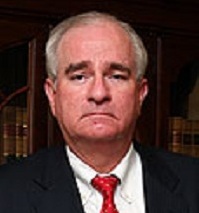
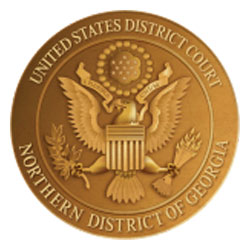
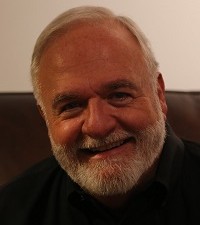





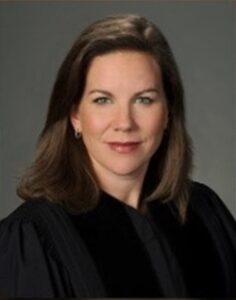
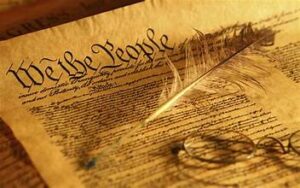






 Proposed Legislation to Save America was presented to the U.S. Congress
Proposed Legislation to Save America was presented to the U.S. Congress
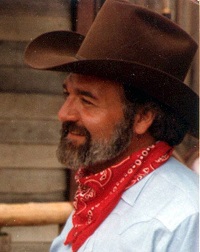
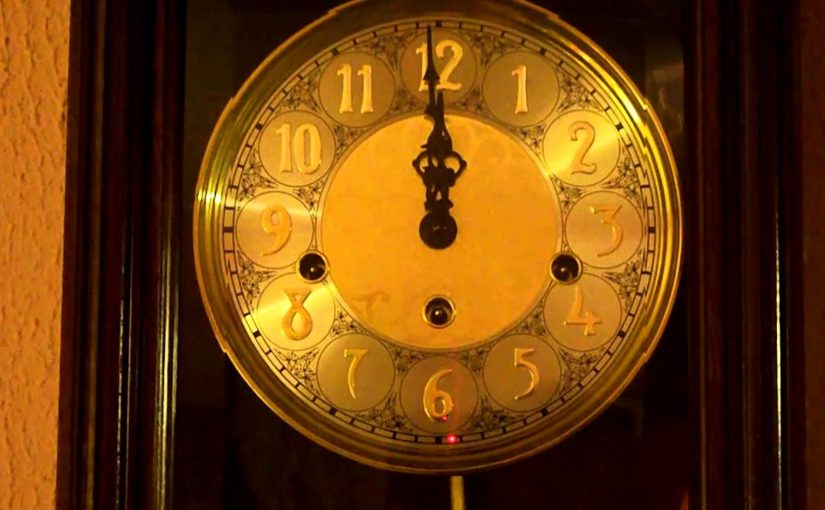
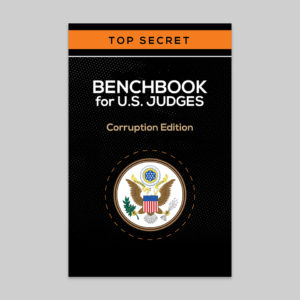





 I am
I am  U.S. SUPREME COURT JUSTICE CLARENCE THOMAS GAVE BILL WINDSOR’S PETITION A BIG THUMBS UP.
U.S. SUPREME COURT JUSTICE CLARENCE THOMAS GAVE BILL WINDSOR’S PETITION A BIG THUMBS UP.